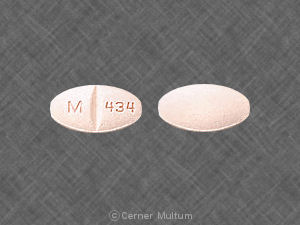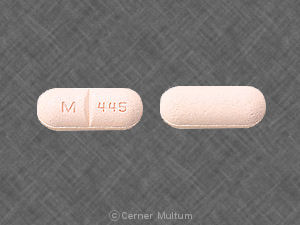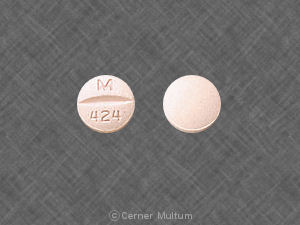What is the most important information I should know about hydrochlorothiazide and metoprolol?
You should not use hydrochlorothiazide and metoprolol if you have a serious heart condition such as "sick sinus syndrome" or "AV block" (unless you have a pacemaker), slow heartbeats that have caused you to faint, or if your heart cannot pump blood properly.
You should not use this medicine if you are unable to urinate.
Do not stop using this medicine suddenly, even if you feel fine. Stopping suddenly may cause serious or life-threatening heart problems. Follow your doctor's instructions about tapering your dose.
What is hydrochlorothiazide and metoprolol?
Hydrochlorothiazide is a thiazide diuretic (water pill) that helps prevent your body from absorbing too much salt, which can cause fluid retention.
Metoprolol is a beta-blocker. Beta-blockers affect the heart and circulation (blood flow through arteries and veins).
Hydrochlorothiazide and metoprolol is a combination medicine used to treat high blood pressure (hypertension).
Hydrochlorothiazide and metoprolol may also be used for purposes not listed in this medication guide.
What should I discuss with my healthcare provider before taking hydrochlorothiazide and metoprolol?
You should not use this medicine if you are allergic to hydrochlorothiazide or metoprolol, or if you have:
- a serious heart condition such as "sick sinus syndrome" or "AV block" (unless you have a pacemaker), or if your heart cannot pump blood properly;
- slow heartbeats that have caused you to faint;
- severe or uncontrolled heart failure;
- an allergy to sulfa drugs; or
- if you are unable to urinate.
To make sure hydrochlorothiazide and metoprolol is safe for you, tell your doctor if you have:
- congestive heart failure;
- slow heartbeats;
- blood circulation problems;
- asthma or other breathing disorder;
- peripheral vascular disease such as Raynaud's syndrome;
- diabetes;
- a thyroid disorder;
- kidney disease (or if you are on dialysis);
- pheochromocytoma (tumor of the adrenal gland);
- glaucoma;
- lupus;
- gout; or
- high cholesterol or triglycerides.
It is not known whether this medicine will harm an unborn baby. Tell your doctor if you are pregnant or plan to become pregnant.
Hydrochlorothiazide and metoprolol can pass into breast milk and may harm a nursing baby. Tell your doctor if you are breast-feeding a baby.
How should I take hydrochlorothiazide and metoprolol?
Follow all directions on your prescription label. Your doctor may occasionally change your dose to make sure you get the best results. Do not use this medicine in larger or smaller amounts or for longer than recommended.
You may take hydrochlorothiazide and metoprolol with or without food.
You may have very low blood pressure while taking this medicine. Call your doctor if you are sick with vomiting or diarrhea, or if you are sweating more than usual. Prolonged illness can lead to a serious electrolyte imbalance, making it dangerous for you to use hydrochlorothiazide and metoprolol.
Your blood pressure will need to be checked often. You may also need frequent blood tests.
If you are diabetic, check your blood sugar carefully. Taking hydrochlorothiazide and metoprolol can make it harder for you to tell when you have low blood sugar. Do not change your medication dose or schedule without your doctor's advice.
If you need surgery, tell the surgeon ahead of time that you are using hydrochlorothiazide and metoprolol.
Keep using this medicine as directed, even if you feel well. High blood pressure often has no symptoms. You may need to use blood pressure medicine for the rest of your life.
Do not stop using hydrochlorothiazide and metoprolol suddenly, even if you feel fine. Stopping suddenly may cause serious or life-threatening heart problems. Follow your doctor's instructions about tapering your dose.
Store at room temperature away from moisture and heat.
What happens if I miss a dose?
Take the missed dose as soon as you remember. Skip the missed dose if it is almost time for your next scheduled dose. Do not take extra medicine to make up the missed dose.
What happens if I overdose?
Seek emergency medical attention or call the Poison Help line at 1-800-222-1222.
Overdose symptoms may include fast or slow heart rate, trouble breathing, or fainting.
What should I avoid while taking hydrochlorothiazide and metoprolol?
This medicine may impair your thinking or reactions. Be careful if you drive or do anything that requires you to be alert. Avoid getting up too fast from a sitting or lying position, or you may feel dizzy. Get up slowly and steady yourself to prevent a fall.
Drinking alcohol can further lower your blood pressure and may increase certain side effects of hydrochlorothiazide and metoprolol.
Avoid becoming overheated or dehydrated during exercise and in hot weather. Follow your doctor's instructions about the type and amount of liquids you should drink. In some cases, drinking too much liquid can be as unsafe as not drinking enough.
What are the possible side effects of hydrochlorothiazide and metoprolol?
Get emergency medical help if you have signs of an allergic reaction: hives; difficult breathing; swelling of your face, lips, tongue, or throat.
Call your doctor at once if you have:
- bronchospasm (wheezing, chest tightness, trouble breathing);
- slow heart rate, weak pulse, fainting, slow breathing (breathing may stop);
- blurred vision, tunnel vision, eye pain, or seeing halos around lights;
-
low potassium --constipation, numbness or tingling, tiredness, muscle weakness, slow heart rate, fainting; or
-
low levels of sodium in the body --headache, confusion, slurred speech, severe weakness, vomiting, loss of coordination, feeling unsteady.
Common side effects may include:
- tired feeling; or
- stuffy nose, sore throat.
This is not a complete list of side effects and others may occur. Call your doctor for medical advice about side effects. You may report side effects to FDA at 1-800-FDA-1088.
What other drugs will affect hydrochlorothiazide and metoprolol?
Tell your doctor about all your current medicines and any you start or stop using, especially:
- clonidine;
- digoxin;
- diltiazem, verapamil;
- epinephrine (Epi-Pen);
- lithium;
-
an MAO inhibitor --isocarboxazid, linezolid, methylene blue injection, phenelzine, rasagiline, selegiline, tranylcypromine, and others; or
-
an NSAID (nonsteroidal anti-inflammatory drug) --aspirin, ibuprofen (Advil, Motrin), naproxen (Aleve), celecoxib, diclofenac, indomethacin, meloxicam, and others.
This list is not complete. Other drugs may interact with hydrochlorothiazide and metoprolol, including prescription and over-the-counter medicines, vitamins, and herbal products. Not all possible interactions are listed in this medication guide.
Where can I get more information?
Your pharmacist can provide more information about hydrochlorothiazide and metoprolol.
Remember, keep this and all other medicines out of the reach of children, never share your medicines with others, and use this medication only for the indication prescribed.
Every effort has been made to ensure that the information provided by Cerner Multum, Inc. ('Multum') is accurate, up-to-date, and complete, but no guarantee is made to that effect. Drug information contained herein may be time sensitive. Multum information has been compiled for use by healthcare practitioners and consumers in the United States and therefore Multum does not warrant that uses outside of the United States are appropriate, unless specifically indicated otherwise. Multum's drug information does not endorse drugs, diagnose patients or recommend therapy. Multum's drug information is an informational resource designed to assist licensed healthcare practitioners in caring for their patients and/or to serve consumers viewing this service as a supplement to, and not a substitute for, the expertise, skill, knowledge and judgment of healthcare practitioners. The absence of a warning for a given drug or drug combination in no way should be construed to indicate that the drug or drug combination is safe, effective or appropriate for any given patient. Multum does not assume any responsibility for any aspect of healthcare administered with the aid of information Multum provides. The information contained herein is not intended to cover all possible uses, directions, precautions, warnings, drug interactions, allergic reactions, or adverse effects. If you have questions about the drugs you are taking, check with your doctor, nurse or pharmacist.
Copyright 1996-2018 Cerner Multum, Inc. Version: 5.02. Revision date: 10/15/2015.


